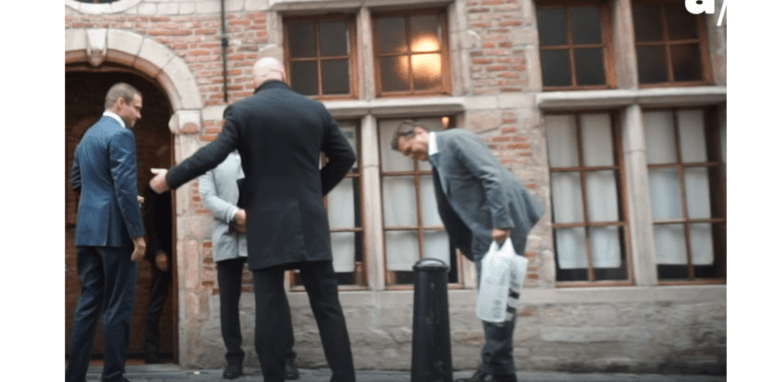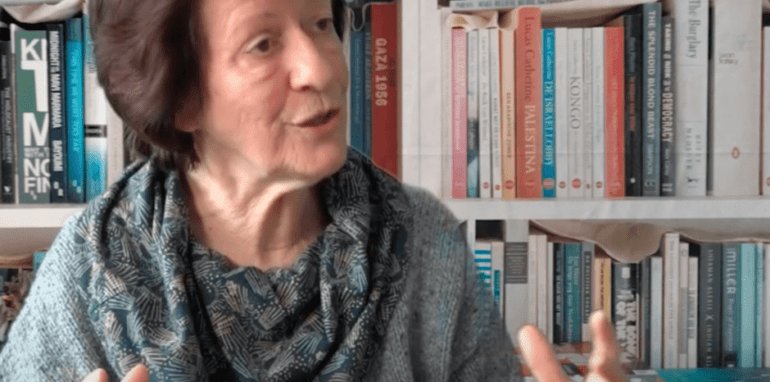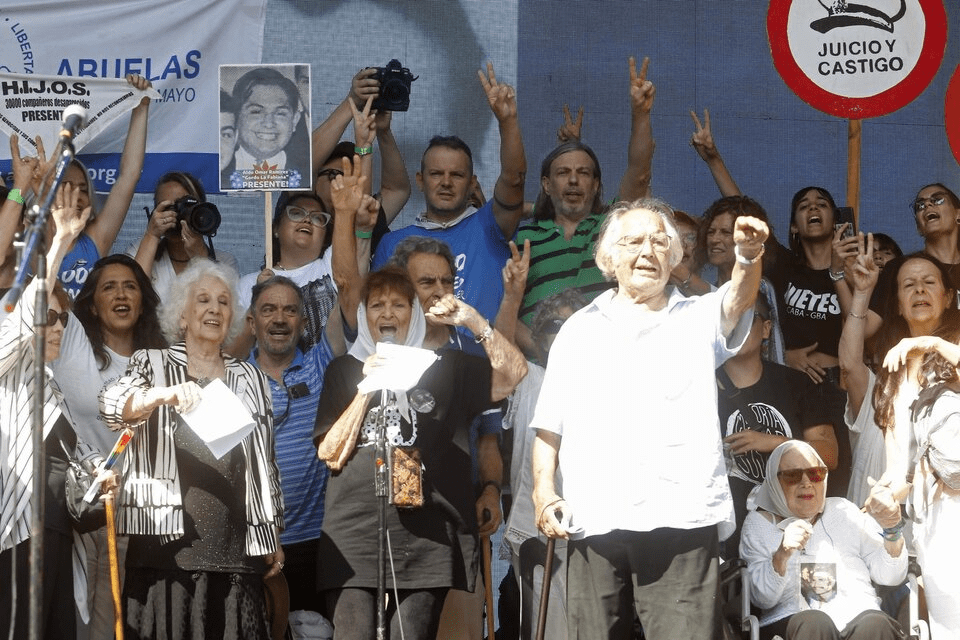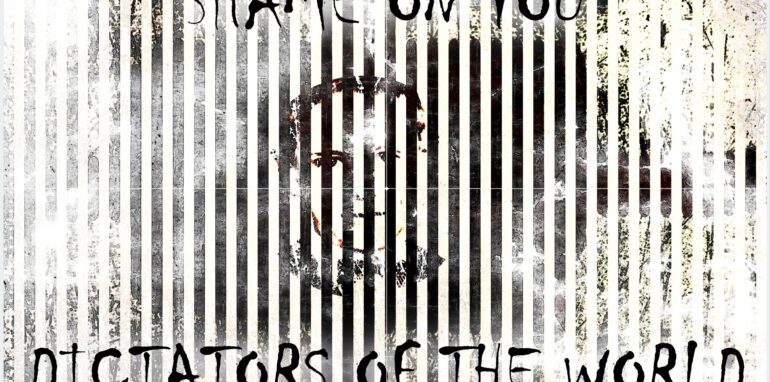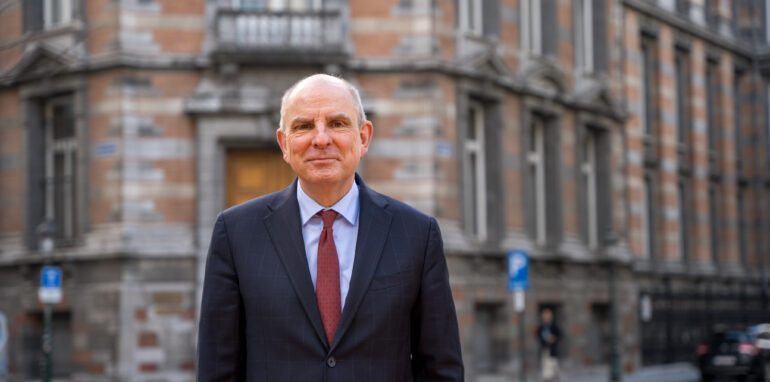0. Preface
0.1 This text is a collection of footnotes noted down during the lessons ‘architecture and activism’.
0.1.1 With the spirit of Jacques Rancière in mind, I made a list of the philosophical and psychological references that were mentioned in class.
0.1.1.1 Jacques Rancière is a French philosopher who wrote ‘Le Maître ignorant. Cinq Leçons sur l’émancipation intellectuelle’ (1987).
0.1.1.1.1 Rancière questioning education and the role of the educator.
0.1.1.1.2 Jacques Rancière describes the story of Joseph Jacotot, who was appointed to teach French literature in the university of Leuven. While teaching his French courses he realizes that the majority of the students isn’t able to understand him. He on the other hand can’t speak Dutch and therefore needed to look for something that could span the barrier. As an experiment he hands out a random bilingual book. To his surprise, it turned out that the students, after self-studying the book, were able to write a text in French. This made him question the role of the (school)master.
0.1.1.1.2.1 The handed out book is chosen at random for its topic wasn’t important.
0.1.1.1.2.2 A bilingual book so students could study the French text by using the translation.
0.1.1.1.3 Rancière starts his search for an education where the teacher knows less and less about the subject of the course, he becomes ‘ignorant’. The master should strengthen the students’ confidence to learn independently because all men have equal intelligence. It’s a liberation of the students where they are not bound to the expert.
0.1.1.2 This self-exploring is a parallel guidance through the handled themes in class. Hopefully resulting in a more thorough knowledge of them.
0.1.2 I understood architecture and activism to be lessons in philosophy. Thus, for me, there was a need for a structured representation which would include the various concepts that serve as the foundation of the course.
0.1.2.1 More importantly, I needed an overview of these topics for my own lack of knowledge. A document that I could expand as much as I wanted, depending on my need of the depth per subject.
0.1.3 They are categorized chronologically.
1. 23.02.2018.
1.1 Kick off.
1.1.1 ‘The three ecologies’ (2000) by Félix Guattari.
1.1.1.1 This reference was given in context of the commons.
1.1.1.2 ‘It seems to me essential to organize new micropolitical and microsocial practices, new solidarities, a new gentleness, together with new aesthetic and new analytic practices regarding the formation of the unconscious. It appears to me that this is the only possible way to get social and political practices back on their feet, working for humanity and not simply for a permanent reequilibration of the capitalist semiotic Universe. One might object that large-scale struggles are not necessarily in sync with ecological praxis and the micropolitics of desire, but that’s the point: it is important not to homogenize various levels of practice or to make connections between them under some transcendental supervision, but instead to engage them in processes of heterogenesis.’
1.1.1.3 The three ecologies according to Guattari: environmental ecology, social ecology, mental ecology.
1.1.1.3.1 Guattari states that ‘only an ethico-political articulation – ecosophy- between the three ecological registers (the environment, social relations and human subjectivity)’ would answer the ecological problematics that plague our planet.
1.2 Recyclart visit.
2. 02.03.2018.
2.1 Introductory lectures Gideon.
2.1.1 While reflecting on the interference of the government on the closure of Recyclart Gideon mentions Slavoj Žižek.
2.1.1.1 The government answers to a part of the demands, which paralyzes Recyclart to do anything. They can only yearn for next year, to the moment they can return to Kapellekerk.
2.1.1.2 Slavoj Žižek is a Slovenian philosopher and sociologist.
2.1.1.2.1 In his article ‘Against human rights’ (2005), that appeared in New Left Review 34, Žižek writes:
‘(…) we may problematize, at a general level, the ostensibly depoliticized politics of human rights as the ideology of military interventionism serving specific economico-political ends.’
Afterwards Žižek refers to what Wendy Brown wrote:
‘such humanitarianism presents itself as something of an anti-politics, a pure defence of the innocent and the powerless against power, a pure defence of the individual against immense and potentially cruel or despotic machineries of culture, state, war, ethnic conflict, tribalism, patriarchy, and other mobilizations or instantiations of collective power against individuals.’
(‘Human Rights as the Politics of Fatalism’, South Atlantic Quarterly, vol. 103, no. 2–3, p. 453.)
2.1.1.3 By displacing the responsibility, the government disqualifies all conflicting debate in advance.
2.1.2 Politics is in the architectural design or within the assignment.
2.1.2.1 Wim Cuyvers is given as an example. Georges Bataille’s writings on transgression play an important role within his work and thoughts.
2.1.2.1.1 Georges Bataille is a French writer and philosopher. In his book ‘L’érotisme’ (1957) he considers systematically the relationship between taboo and transgression.
2.1.3 Escape of Para-architecture.
2.1.3.1 Concept of para-architecture is introduced by Lieven De Cauter. ‘It is architecture that plays out in a parallel world.’
2.1.4 Overidentification.
2.1.4.1 Slavoj Žižek about the esthetics of the band Laibach.
2.1.4.1.1 ‘The only way to be really subversive is not to develop critical potentials, ironic distance, but precisely to take the system more seriously than it takes itself.’
2.1.4.1.1.1 Subversive affirmation.
2.1.4.1.2 ‘What Laibach is doing is precisely bringing to the light of the day this inherent transgression, which precisely in order for the system to reproduce itself, must remain hidden.’
2.1.4.2 Hystericizing.
2.1.4.2.1 A term used by Lacan in his Discours de l’Hystérique.
S = the subject
a = surplus jouissance
S1 = the master signifier
S2 = the knowledge
2.1.4.2.1.1 The question of subjectivity; primacy to the division of the subject (S), over his or her fantasy (a), producing the symptom in the place of knowledge (S1), related to but divided from the signifying chain which supports it (S2)
2.1.4.2.1.2 Hysteria is the unconscious itself actively engaged in appealing to the master to produce a knowledge.
2.1.4.3 Potentiality.
2.1.4.3.1 It only exists if nothing happens. If something does happen, the potential is gone.
3. J.De Nijs
3.1 J. without potential



 “Franse kernenergie? Ongelooflijk dat hun leugencam...
“Franse kernenergie? Ongelooflijk dat hun leugencam... 